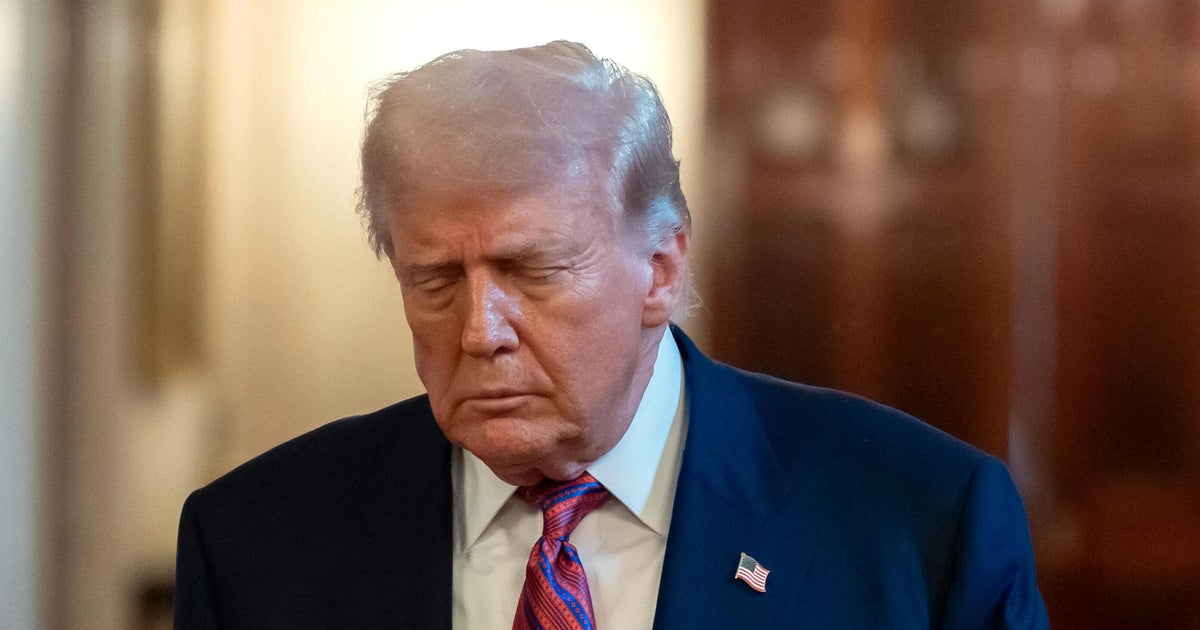Did Trump Just File a $10 Billion Lawsuit Against the Wall Street Journal Over Epstein Claims?

Exploring the Implications of Trump's Libel Lawsuit Against the Wall Street Journal
On Friday, former President Donald Trump initiated a significant libel lawsuit against the Wall Street Journal's publisher and Rupert Murdoch, its leader. This legal action stems from a recent article that described a birthday letter Trump allegedly sent to Jeffrey Epstein, which the publication characterized as "bawdy." The implications of this lawsuit warrant a closer examination, as they touch on issues of free speech, media accountability, and the broader context of Trump's ongoing legal battles.
The Background of the Lawsuit
The lawsuit comes in the wake of heightened scrutiny surrounding Trump's relationships and actions, particularly during his presidency. The Wall Street Journal's article suggested that the letter in question contained inappropriate language that could damage Trump's public image. Trump's legal team quickly moved to counter these claims, asserting that the publication knowingly disseminated false information.
Understanding Libel in the Context of Media Reporting
Libel is a form of defamation that involves publishing false statements that can harm an individual's reputation. In the United States, public figures like Trump face a higher threshold when filing libel suits. They must demonstrate not only that the statements were false but also that the publisher acted with "actual malice," meaning they knew the statements were false or acted with reckless disregard for the truth.
What This Lawsuit Means for Trump
For Trump, this lawsuit represents an opportunity to challenge the narrative surrounding his connections to Epstein, who was a controversial figure with a history of serious criminal allegations. By pursuing legal action, Trump aims to reinforce his stance against what he perceives as media bias and misrepresentation. This lawsuit could also serve to rally his base, portraying him as a victim of a biased media landscape.
The Wall Street Journal's Position
The Wall Street Journal, known for its rigorous journalism, will likely defend its article with arguments surrounding the public's right to know about the relationships of influential figures. Rupert Murdoch, as the leader of the publication, may face intense scrutiny as the case unfolds. The outcome of this lawsuit could set a precedent for how media outlets report on public figures and their associations.
The Broader Implications for Media and Free Speech
This lawsuit highlights the ongoing tensions between public figures and the media. It raises critical questions about the boundaries of free speech and the responsibilities of journalists. As litigation unfolds, the case could redefine how journalists cover controversial topics and powerful individuals.
Key Takeaways from the Lawsuit
- Increased Legal Scrutiny: Public figures may face more challenges in proving libel cases due to the high burden of proof required.
- Media Responsibility: Journalists must balance the public's right to know with responsible reporting practices.
- Impact on Public Perception: The outcome may influence how the public perceives both Trump and the Wall Street Journal.
Frequently Asked Questions
What are the possible outcomes of Trump's libel lawsuit?
The possible outcomes range from a dismissal of the case to a potential settlement or a ruling in favor of Trump. If the case goes to trial, it could create a significant legal precedent regarding media coverage of public figures.
How could this lawsuit affect media reporting in the future?
If Trump wins the lawsuit, it may lead to caution among journalists when reporting on public figures, particularly in situations involving allegations or controversial relationships. Conversely, if the Wall Street Journal prevails, it could reinforce the idea that media outlets have broad leeway in their reporting on public figures.
What does "actual malice" mean in the context of libel?
"Actual malice" refers to a standard that public figures must meet to prove libel. It requires showing that the publisher knew the statement was false or acted with reckless disregard for its truthfulness.
Is Trump's lawsuit against the Wall Street Journal unique?
While lawsuits against media outlets are not uncommon, Trump's case is notable due to his high profile and the ongoing political context. It underscores the contentious relationship between Trump and the media.
As this lawsuit progresses, it will undoubtedly attract significant attention. Both the media and public figures must navigate the complex landscape of free speech and responsible journalism. The implications of Trump's legal battle with the Wall Street Journal could resonate beyond this case, influencing how future stories are reported and perceived.
In conclusion, the unfolding events surrounding Trump's libel lawsuit against the Wall Street Journal serve as a critical reminder of the intricate balance between media freedom and accountability. As the legal proceedings continue, one must wonder about the future of journalism in an era marked by heightened scrutiny and polarized opinions. Will this case reshape the landscape of media reporting, or will it merely reinforce existing narratives? #TrumpLawsuit #MediaAccountability #FreeSpeech
Published: 2025-07-19 01:11:14 | Category: Trump GNEWS Search



